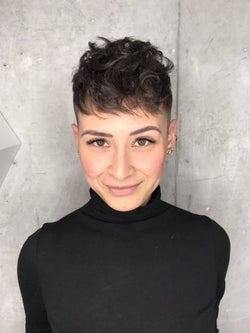Session Abstract
In this Igniting our Practice session, we will explore AI virtual assistants like Amazon’s Alexa and Apple’s Siri as timely case studies for teaching feminist media analysis. These ubiquitous voices are more than just convenient; they reveal critical lessons about gendered labour, surveillance, and power in digital technology. We’ll discuss strategies to engage students in critical AI analysis, challenge assumptions, and sharpen digital literacy. This session aims to provide tools for integrating media and technology critique into coursework, equipping users to examine how technology both reflects and reinforces power, identity, and social structures. Ultimately, this session aims to equip students to reflect on who—and what—is really doing the work in AI.

Dr. Brianna I. Wiens
Biography
Dr. Brianna Wiens' (she/her) research program examines how people use media in critical and creative ways to foster community and speak back to power and explores how we build community through digital technology while negotiating its complex power dimensions. Since her MA (Communication: Rhetoric and Culture, CU Boulder) and her PhD (Communication and Culture, York University), she has been interested in the ways that people engage in rhetorical resistance by speaking back to systems in power, and the ways that these rhetorics offer critical sources of data that form the basis of community-centred change.
Her MA explored mediations of activist graffiti and the politics of their aesthetics on social media, while her doctoral work was dedicated to developing a theoretical framework (what she called intersectional entanglements) for grappling with the complexities of online phenomena, like digital social movements, through the example of #MeToo. These experiences directly inform her overarching research goals, which are to: (1) highlight equitable alternatives to normative media practices; (2) amplify the work of racialized, queer, disabled, and other equity-deserving groups; and (3) embrace multiple forms of expertise, knowledge, and lived experience.
To work towards these research goals, she works at the intersections of digital culture, rhetoric, and feminist media studies. Across these fields, she leverages queer and intersectional feminist perspectives to examine the rhetorics, politics, and design of technologies and digital artifacts, and she asks questions about power at individual, community, and structural levels. Her commitment to academia is also a commitment to political mobilizing and to scholarly activism—a constant feminist reminder that the personal (as well as community and structural) is political. Because of this, her interdisciplinary work inevitably draws on her own experience as a mixed-race queer activist-scholar.
Alongside her colleague and co-conspirator, Dr. Shana MacDonald, she is the Co-Director of the Feminist Think Tank, a research-creation collective that advances research on feminist media, art, and design, out of which they co-run the digital archive Feminists Do Media.